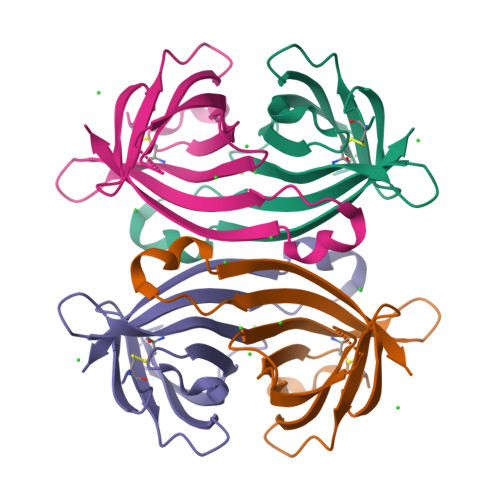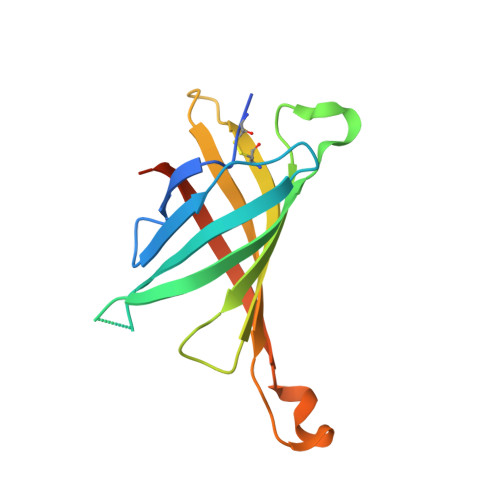Artificial Avidin-Based Receptors for a Panel of Small Molecules.
Lehtonen, S.I., Tullila, A., Agrawal, N., Kukkurainen, S., Kahkonen, N., Koskinen, M., Nevanen, T.K., Johnson, M.S., Airenne, T.T., Kulomaa, M.S., Riihimaki, T.A., Hytonen, V.P.(2016) ACS Chem Biol 11: 211-221
- PubMed: 26550684
- DOI: https://doi.org/10.1021/acschembio.5b00906
- Primary Citation of Related Structures:
4U46 - PubMed Abstract:
Proteins with high specificity, affinity, and stability are needed for biomolecular recognition in a plethora of applications. Antibodies are powerful affinity tools, but they may also suffer from limitations such as low stability and high production costs. Avidin and streptavidin provide a promising scaffold for protein engineering, and due to their ultratight binding to D-biotin they are widely used in various biotechnological and biomedical applications. In this study, we demonstrate that the avidin scaffold is suitable for use as a novel receptor for several biologically active small molecules: Artificial, chicken avidin-based proteins, antidins, were generated using a directed evolution method for progesterone, hydrocortisone, testosterone, cholic acid, ketoprofen, and folic acid, all with micromolar to nanomolar affinity and significantly reduced biotin-binding affinity. We also describe the crystal structure of an antidin, sbAvd-2(I117Y), a steroid-binding avidin, which proves that the avidin scaffold can tolerate significant modifications without losing its characteristic tetrameric beta-barrel structure, helping us to further design avidin-based small molecule receptors.
Organizational Affiliation:
BioMediTech, University of Tampere , Biokatu 6, FI-33014 Tampere, Finland.



















